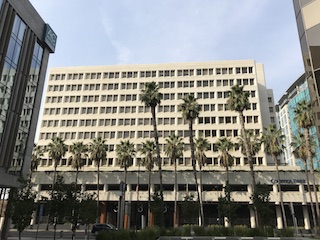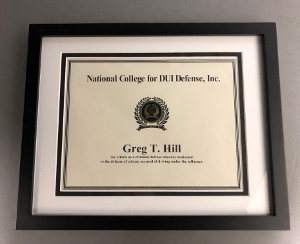In any case involving prior strikes, there are a seemingly endless set of possible sentences depending on whether the prior strike is a “serious” or “violent” felony and whether defendant disputes the facts of the prior conduct.
Summary in 40 Words or Less: In a felony DUI, if one pleads to vehicular manslaughter this is an admission to proximately causing the death of another, which is distinguishable from personally inflicting such death and therefore, vehicular manslaughter is not a strike.
This general starting point, however, in any case involving a defendant with one prior strike conviction is that the sentence for the subject offense is doubled. Penal Code §§ 667(e)(1) and 1170.12(c)(1). If the prior strike resulted from a plea bargain (without a jury finding), the sentencing court may not double the sentence if defendant disputes the facts (or never admitted to the facts). The sentencing court may only consider facts defendant admits.
 Court of Appeal Sixth Appellate District San Jose
Court of Appeal Sixth Appellate District San Jose
In the case of Rick Wilson, the interplay of these rules and facts came into full effect. In 1993, Wilson entered into a plea bargain after he was arrested for allegedly causing an accident that injured his passenger and killed another person. Wilson had a 0.21% blood alcohol content at the time of driving. Wilson maintained that his girlfriend had grabbed the steering wheel, turning the car to cause the accident and thus, the injuries and death.
There was no transcript of the plea. In contrast to most pleas, there was no record of Wilson admitting to any facts. He was sentenced to seven years in state prison, suspended, with five years of formal probation. He was saddled with two “strikes,” one for the manslaughter (Vehicle Code § 191.5(c)) and one for the passenger injury (Vehicle Code § 23153).
After several appeals, a federal court vacated Wilson’s sentence because the trial court violated
Apprendi v. New Jersey (2000) 530 U.S. 466. The court ruled that the prosecutor at the sentencing hearing failed beyond a reasonable doubt to prove Wilson (as compared to his girlfriend) personally inflicted injuries upon the surviving passenger. Thus the strike associated with the passenger’s injury was removed.
Wilson never wavered from his contention that the surviving passenger grabbed the steering wheel and caused the crash.
Moreover, the Sixth Appellate District noted that the three strikes law did not become law until 1993 and Wilson’s plea to the causing injury while driving intoxicated charge was in 1992. Had Wilson known the consequences of being saddled with “strike” convictions, his defense may have been clearer, so the appeals court seemingly gave him leniency on this issue.
The appellate court, however, curiously left intact the strike for the manslaughter offense.
Six years later, in 1999, police arrested Wilson after he ran a red light at high speed. Wilson became belligerent and refused to take a blood test.

The information charged Wilson with felony DUI, with a prior strike conviction for gross vehicular manslaughter while intoxicated. The court held a jury trial and Wilson was convicted. Wilson waived his right to jury trial on the prior conviction, but not on the facts required to prove the strike prior.
The court then held a bench trial on the strike prior. The trial court found true the strike prior and doubled his sentence, a three year sentence (maximum for felony DUI) made into six years.
Wilson then appealed his sentence, again to the Sixth Appellate District, arguing that the prosecution failed to prove the prior strike findings beyond a reasonable doubt. The Sixth Appellate District noted that the key inquiry was whether Wilson personally inflicted the injury that caused his passenger’s death.
The court found that Wilson’s plea of no contest to gross vehicular manslaughter while intoxicated constituted an admission of every element of that offense.
People v. Jones (1959) 52 Cal. 2d 636, 651. The death of another person is an element of the crime. Thus, Wilson also caused great bodily injury to the decedent.
However, by pleading to the vehicular manslaughter charge, Wilson only admitted to the element of proximately causing the passenger’s death. However, proximate cause and personal infliction are distinguishable (
People v. Rodriguez (1999) 61 Cal. App. 4th 341, 347). To personally inflict is to directly cause an injury, not just proximately cause it. Personally means without intervention from another or an intermediary.
Here, the Sixth Appellate District noted, Wilson’s conduct “realistically may have been based on conduct that would not constitute a serious felony under California law.”
Thus the appellate court reversed the judgment that Wilson’s prior manslaughter conviction was a strike. Wilson’s persistence paid off.
The citation for the Sixth Appellate District Court of Appeals ruling discussed above is People v. Rick J. Wilson (6th App. Dist., 2013) 219 Cal.App.4th 500, 162 Cal. Rptr. 3d 43.
For more information about DUI sentencing, click on the following articles:
 Court of Appeal Sixth Appellate District San Jose
Court of Appeal Sixth Appellate District San Jose